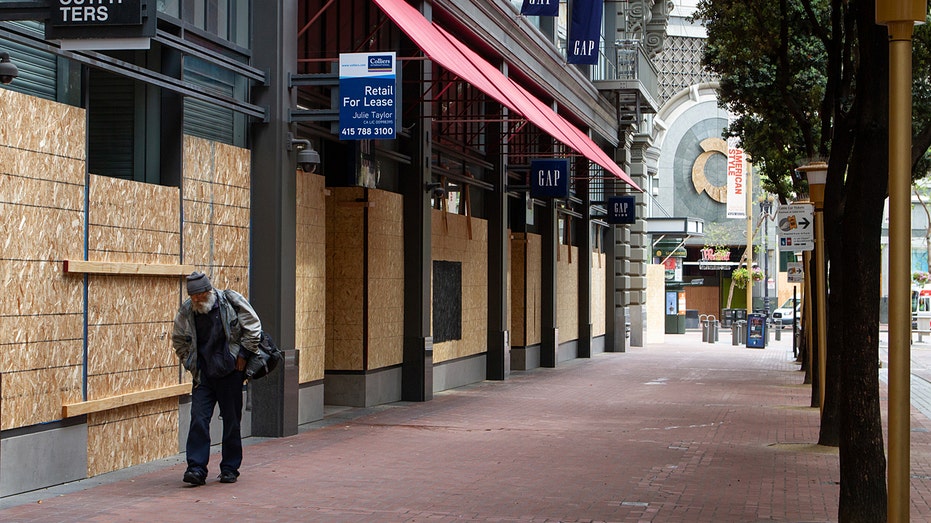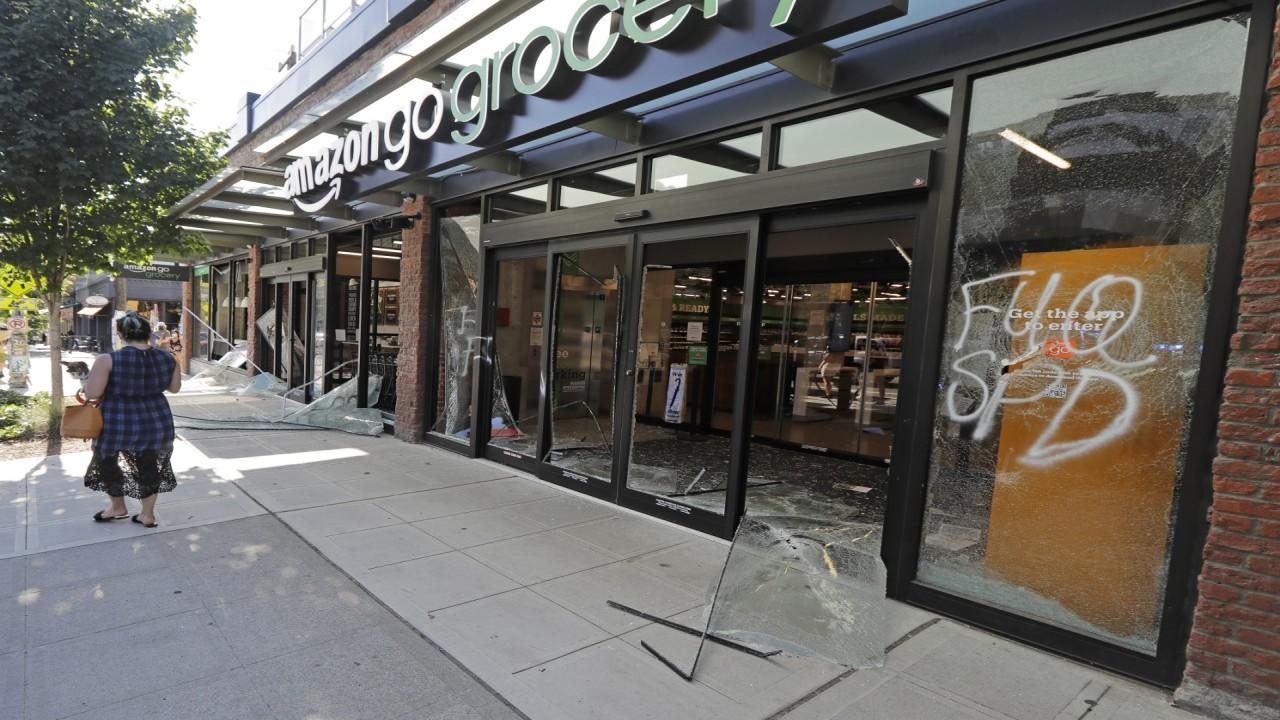American stores reluctant to uncover boarded-up windows amid civil unrest, coronavirus
Biden could stop violent protests ‘in a second’: Black Voices for Trump board member
Black Voices for Trump advisory board member Stacey Washington on how presidential candidate Joe Biden and other Democrats are responding to violent protesters across the U.S.
Thin sheets of brown plywood are holding American businesses together — and pushing some shoppers away at the same time.
Continue Reading Below
Under the strain of 2020's COVID-19 pandemic, a devastating economic crisis and intense social and political turmoil, boarded storefronts have become the new norm for shops in cities across the country.
As The Wall Street Journal reported Friday, even places that haven't seen significant civil unrest amidst nationwide protests against racial injustice note that delays in glass shipments, lagging sales, and concern over potential future destruction have been contributing factors to the slow removal of plywood protections.
LORD & TAYLOR HOLDING GOING-OUT-OF-BUSINESS SALES AS COMPANY CLOSES ALL STORES
Property owners are closely monitoring developments in places like Kenosha, Wisconsin, where protests surged following the police shooting of 29-year-old Jacob Blake as well as Washington, D.C., which saw violent skirmishes following the last night of the Republican National Convention.
On Wednesday, looting occurred in downtown Minneapolis stores after a suspected gunman fatally shot himself as police were moving in to arrest him in a slaying hours earlier.
Nervous business owners reportedly worry that even if they could afford repairs to the boarded windows, they might end up back at square one if tensions boil over again.
Whether boards remain up — and how many do — varies from city to city.
Retail stores are boarded up in downtown San Francisco during the COVID-19 pandemic. (iStock) Block by Block, a unit of Nashville-based SMS Holdings Co., told the Journal that over one-quarter of the 88 business-improvement districts in major metro areas it had surveyed last week still had boards on some businesses. They also said boarded-up windows were more common in the western half of the U.S. than in the east. While Philadelphia's Center City District says most boards have been removed, cautious business owners have been reluctant to replace windows with pricy glass orders that must meet custom specifications. In New York City's SoHo shopping district – hit hard by looting in June – a handful of retail storefronts remain covered, though shoppers are slowly returning to the neighborhood. Additionally, stringent health regulations limit how owners can proceed, complicating an already pressured situation. Earlier this month, a report in The New York Times spotlighting a Partnership for New York City study revealed that roughly one-third of the city’s 240,000 small businesses may be permanently shuttered. Data from Yelp released at the end of July showed that 60% of the restaurants that had temporarily closed due to coronavirus had since closed for good. While big-box stores with e-commerce functionality continue to thrive, well-known retailers like Neiman Marcus, J. Crew, and J.C. Penney have all sought bankruptcy protection since January.' Businesses' concerns that boarded windows turn off customers are not unfounded and some are turning to creative solutions. Cleveland, Ohio, has taken advantage of the situation by paying local artists to paint boarded windows with murals dedicated to the Black Lives Matter movement. CLICK HERE TO READ MORE ON FOX BUSINESS Heather Holmes, of the Downtown Cleveland Alliance, told FOX 8 in June that the goal was to connect the community. “We have business, we have artists, we have the activist community at the table engaged in this dialogue to ensure that we do this right,” she said. Source: Read Full Article


